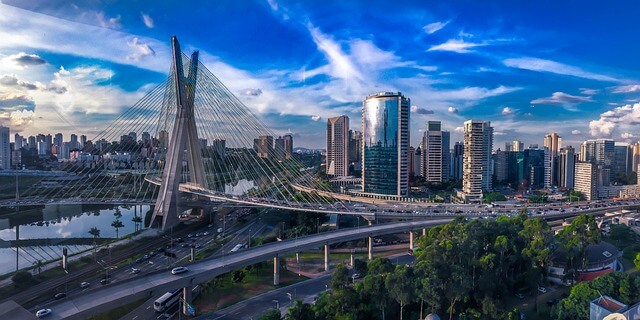This article explores the initiatives to develop smart cities in South Korea and examines various case studies showcasing the application of smart technologies in urban environments. It delves into the strategies, technologies, and implementation challenges involved in building smart cities, as well as the impact of these initiatives on urban sustainability, efficiency, and quality of life. Through a comprehensive analysis, this piece aims to provide insights into South Korea’s efforts to leverage smart technology to address urban challenges and create innovative, livable cities for the future.

1. Building Smart Cities in South Korea: Strategies, Initiatives, and Implementation Challenges
South Korea has emerged as a global leader in the development of smart cities, driven by government initiatives, private sector investments, and technological innovation. The concept of smart cities revolves around leveraging advanced technologies, data analytics, and connectivity to enhance urban infrastructure, services, and governance. Key strategies include the integration of ICT (Information and Communication Technology) into urban planning, the deployment of IoT (Internet of Things) sensors for real-time monitoring, and the adoption of AI (Artificial Intelligence) for data-driven decision-making. However, building smart cities presents various challenges, including funding constraints, interoperability issues, privacy concerns, and citizen engagement. Overcoming these challenges requires collaboration among government agencies, industry partners, academia, and local communities to develop holistic, people-centric solutions that address the diverse needs of urban residents and stakeholders.
2. Case Studies of Smart Technology Application: Transforming Urban Environments and Services
Several cities in South Korea serve as showcases for the successful implementation of smart technologies across various domains, including transportation, energy, healthcare, and public safety. In Seoul, the implementation of smart transportation systems, such as integrated mobility platforms and AI-powered traffic management, has improved traffic flow, reduced congestion, and enhanced commuter experiences. In Songdo, a purpose-built smart city, innovative solutions like district-wide IoT networks, energy-efficient buildings, and automated waste management have enhanced sustainability and quality of life for residents. Similarly, initiatives like telemedicine, remote monitoring, and AI-driven healthcare services have transformed healthcare delivery in smart cities like Busan and Daejeon. These case studies highlight the transformative impact of smart technology on urban environments and the potential for replicating successful models to create more livable, resilient cities across South Korea.
3. Future Directions and Challenges: Towards Sustainable and Inclusive Smart Cities
As South Korea continues to advance its smart city agenda, several key challenges and opportunities lie ahead. Achieving sustainability and inclusivity in smart city development requires addressing issues such as digital divide, data privacy, cybersecurity, and environmental impact. Moreover, ensuring equitable access to smart services and benefits for all segments of society, including vulnerable populations and marginalized communities, is essential for fostering social cohesion and reducing urban inequality. Additionally, the rapid pace of technological innovation necessitates continuous adaptation and policy evolution to keep pace with emerging trends and societal needs. By embracing a holistic approach to smart city development that prioritizes sustainability, inclusivity, and citizen engagement, South Korea can pave the way for creating innovative, resilient, and people-centric cities that enhance the well-being and prosperity of all residents.
Conclusion:
In conclusion, the establishment of smart cities and the application of smart technology present significant opportunities for South Korea to address urban challenges and create innovative, sustainable, and inclusive urban environments. By leveraging advanced technologies, fostering collaboration among stakeholders, and prioritizing citizen-centric approaches, South Korea can build on its strengths as a global leader in smart city development and create a model for future urban living. As the country continues on its smart city journey, proactive measures to address challenges, promote innovation, and ensure inclusivity will be essential for realizing the full potential of smart technology in shaping the cities of tomorrow.